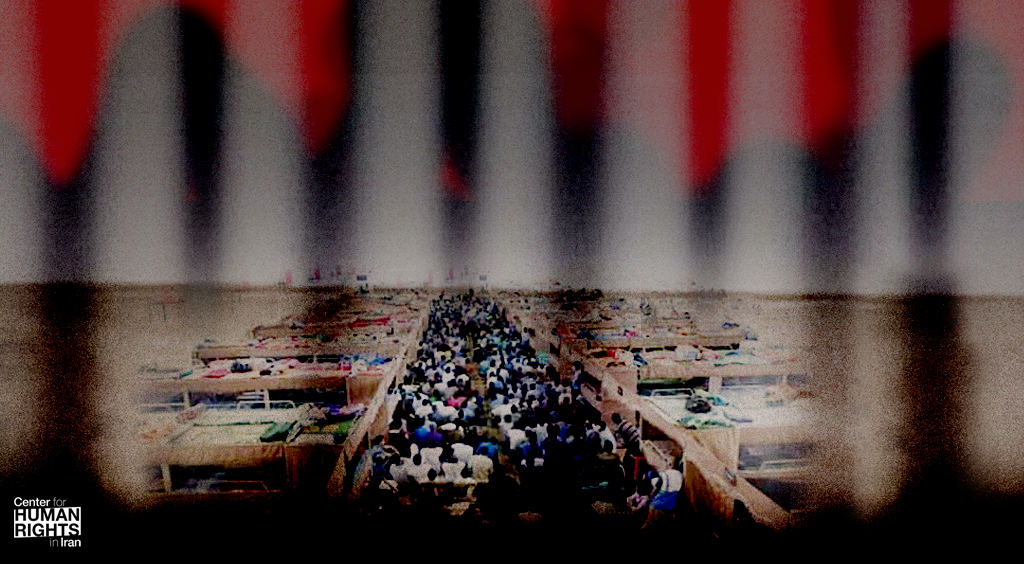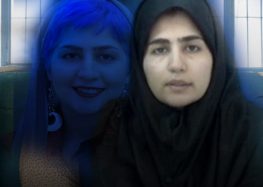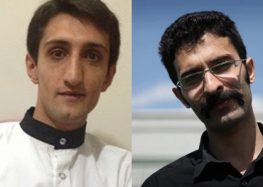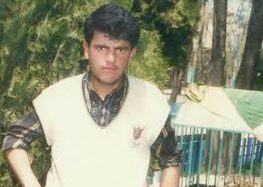“No One Hears Their Voices” Suicides and Self-Immolations in Iran’s Orumiyeh Prison

UN Urged to Address Crisis at Orumiyeh Prison
Cruel and Inhumane Conditions Violate Iranian and International Law
March 6, 2024 – The Center for Human Rights in Iran (CHRI) raises urgent alarms over the dire situation within Iran’s Orumiyeh Central Prison, with recent weeks seeing two suicides and two self-immolations, alongside a surge in executions since the beginning of the year. The voices of over 800 incarcerated individuals echo through a letter demanding the removal of Prison Warden Peyman Khanzadeh.
“The fact that prisoners are driven to such extreme measures within a state-run facility lays bare the appalling conditions they endure daily. It is a indictment of the system’s complete disregard for human life,” said CHRI Executive Director Hadi Ghaemi.
“Prison and judicial authorities bear a legal obligation to safeguard prisoners. Yet the administration of this prison reveals not only negligence but a flagrant disdain for the lives entrusted to their care,” Ghaemi added. “The rampant culture of impunity within the Islamic Republic’s government must end, allowing accountability for the abuses and tragedies inflicted upon the people of Iran.”
CHRI calls on UN human rights officials and global leaders to spotlight the growing crisis at Orumiyeh Prison as part of the Islamic Republic’s egregious human rights violations during the ongoing 55th session of the UN Human Rights Council, and urges these officials to demand that the Iranian authorities address the inhumane and unlawful conditions at Iran’s prisons.
Responsibility for the safety of all prisoners rests squarely on Iran’s State Prisons Organization and the judiciary chief, currently Gholam-Hossein Mohseni-Eje’I, a known human rights violator, even as specific responsibility for the deaths at the prisons remains elusive, despite clear evidence of deliberate harm or negligence suffered by prisoners in state custody.
Suicides Mount, Self-immolations Ignored
At least two prisoners have committed suicide in recent weeks.
“Amir Shahbazi committed suicide a few weeks ago after he satisfied the demands of all his accusers and only had a few days until his release,” said an open letter endorsed by 800 prisoners, published by the Kurdistan Human Rights Network (KHRN) on February 22, 2024, based on audio files from prisoners that CHRI has also obtained.
“Before taking his own life, in a letter to his family, he blamed the prison warden, Peyman Khanzadeh, and the manager in charge of the wards 1 and 2, Akbar Maheri,” added the letter.
A few days after the letter’s publication, Shahin Gallehdar, a Kurdish political prisoner from the village of Haki, West Azerbaijan province, who was serving a two-year sentence on national security charges, hung himself in his cell on February 26, 2024, after being subjected to intense torture by Ministry of Intelligence interrogators over several weeks, according to KHRN.
Hassan Omarpour and Ashkan Osmannejad also self-immolated following the publication of the letter, after prison guards raided the cells of political prisoners on February 28, 2024, assaulting some of the inmates and destroying their belongings.
Prison Warden Peyman Khanzadeh reportedly witnessed the men burning but did nothing to extinguish the fire.
Conditions Include Intense Overcrowding, Beatings
“The enduring torment within these prison walls has become unbearable,” lamented the prisoners’ letter. “Peyman Khanzadeh, the prison warden, not only exacerbates the plight of the prisoners but also inflicts suffering upon their families.”
The letter further reveals: “Orumiyeh Central Prison has six single cells, yet often houses more than six prisoners in each, making it nearly impossible to sleep or even breathe. Those confined to these cells as punishment, such as hunger strikers, endure harsh conditions including inadequate facilities, ventilation, and sanctioned beatings by the warden. Their voices remain unheard amidst these deplorable conditions.”
Orumiyeh Central Prison, established in 1969 outside the capital of West Azerbaijan province, boasts an official capacity of 700 inmates across its 13 wards. However, the actual number housed within is suspected to far exceed this limit.
The high-security section, dubbed the Ershad “Guidance” Ward, currently detains 42 inmates and was erected in 2021, strategically distanced from other wards to ensure complete prisoner isolation. On January 10, 2024, over 40 political prisoners and prisoners of conscience from Ward 10 were relocated to this high-security wing following brutal assaults by guards.
Subsequent to failed negotiations with the ward’s overseer regarding the dire conditions, 44 prisoners initiated a hunger strike on October 23, 2023. Additionally, inmates have raised concerns about pervasive surveillance, with cameras installed in all cells and even bathrooms.
Orumiyeh’s Conditions Violate Iran’s Own Prison Regulations
“The egregious and calculated criminal acts perpetrated by the Orumiyeh prison warden flagrantly violate numerous State Prison Organization Regulations,” said Iranian human rights lawyer Saeid Dehghan in an interview with CHRI.
The regulations were amended for deficiencies 18 days after the death of poet Baktash Abtin in state custody in January 2020, after he was not sent from Evin Prison to a hospital on time. “But the regulations are only a mere piece of paper for the prison officials, otherwise how could the Orumiyeh prison warden so brazenly deprive political prisoners of all basic rights and declare that he’s not afraid of any higher institutions in the country or at the international level?” said Dehghan, currently the director of the Parsi Law Consultancy.”
Dehghan, who previously handled numerous human rights cases in Iran before seeking refuge outside Iran due to safety concerns, emphasized that the warden could face prosecution not only for multiple breaches of prison regulations but also for criminal misconduct under Article 570 of the Islamic Penal Code. This includes orchestrating assaults by guards on political prisoners and denying them their legal entitlements.
Should the warden be prosecuted by higher authorities, Dehghan outlined potential penalties, which could entail imprisonment ranging from two months to three years. Additionally, he could face dismissal from service and a prohibition from holding government positions for one to five years.
However, given the track record of Islamic Republic officials, the likelihood of such prosecution and subsequent punishment—or any level of accountability—remains nearly nonexistent.
The UN’s Basic Principles for the Treatment of Prisoners requires that all prisoners “be treated with the respect due to their inherent dignity and value as human beings” and the UN’s Standard Minimum Rules for the Treatment of Prisoners state: “No prisoner shall be subjected to, and all prisoners shall be protected from, torture and other cruel, inhuman or degrading treatment or punishment, for which no circumstances whatsoever may be invoked as a justification. The safety and security of prisoners, staff, service providers and visitors shall be ensured at all times.”
Executions Mount at Prison, Disproportionally Targeting Minorities
Meanwhile, in December 2023, at least four political prisoners, including one woman, who are members of the country’s Kurdish minority, Vafa Hanareh, Aram Omri, Rahman Parhazou, and Nasim Namazi (female) were executed in Orumiyeh Central Prison. Their alleged crimes of “waging war” and “corruption on earth” were purportedly linked to collaboration with the Israeli secret service—a common accusation used to stifle dissent among ethnic minorities.
Ethnic minorities in Iran are subjected to institutionalized discrimination in the judicial system and are disproportionately handed lengthy prison and death sentences.
Another Kurdish political activist, Mohiyeddin Ebrahimi, was executed in the prison on March 16, 2023.
At least 31 prisoners have been executed within the prison’s walls over the past two months.
Read this report in Perisan
This report was made possible from donations by readers like you. Help us continue our mission by making a tax-deductible donation.





